HIGHLIGHTS
GET TO KNOW US
GET INVOLVED
MEDIA
REGIONS
California, Georgia, Chicago, North Carolina, New Orleans, Puerto Rico, Kentucky, Navajo Nation, Washington, D.C., Hawaii
INTERNATIONAL
CORE is repairing schools in southeastern Ukraine, after they sustained significant damage from months of shelling. After years of disruptions, getting kids back into classrooms is more important than ever.
It’s difficult to forget the disruption caused by the COVID-19 pandemic, particularly to students who transitioned to full-time virtual education and lost valuable facetime with teachers and friends. Fortunately, most students around the world have resumed a regular routine—they wake up, go to school, socialize with friends, attend sports practice or work, and return home.
But many students living in frontline communities in Ukraine have yet to fully emerge from this reality, as the war has upended their lives and education since 2022.
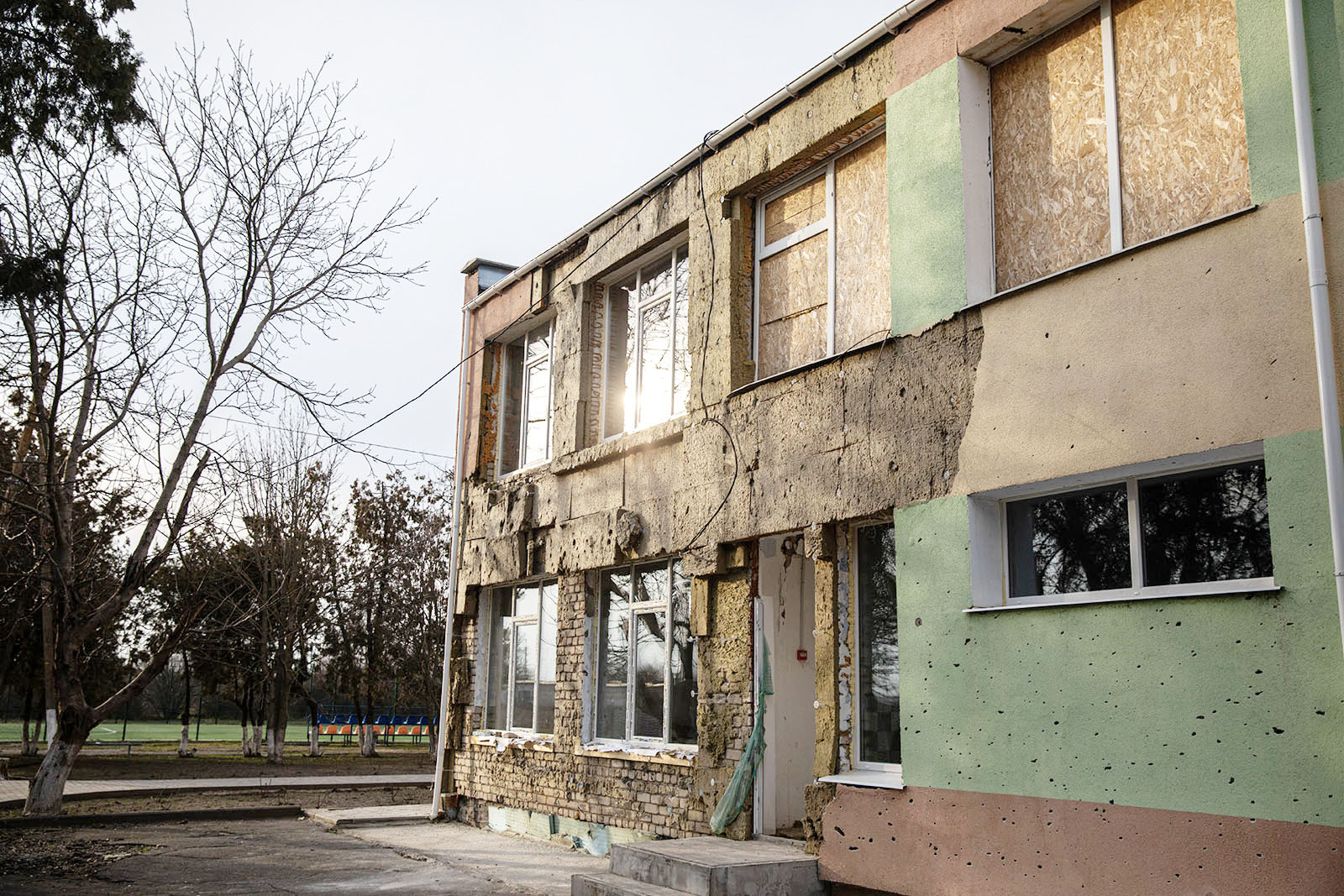
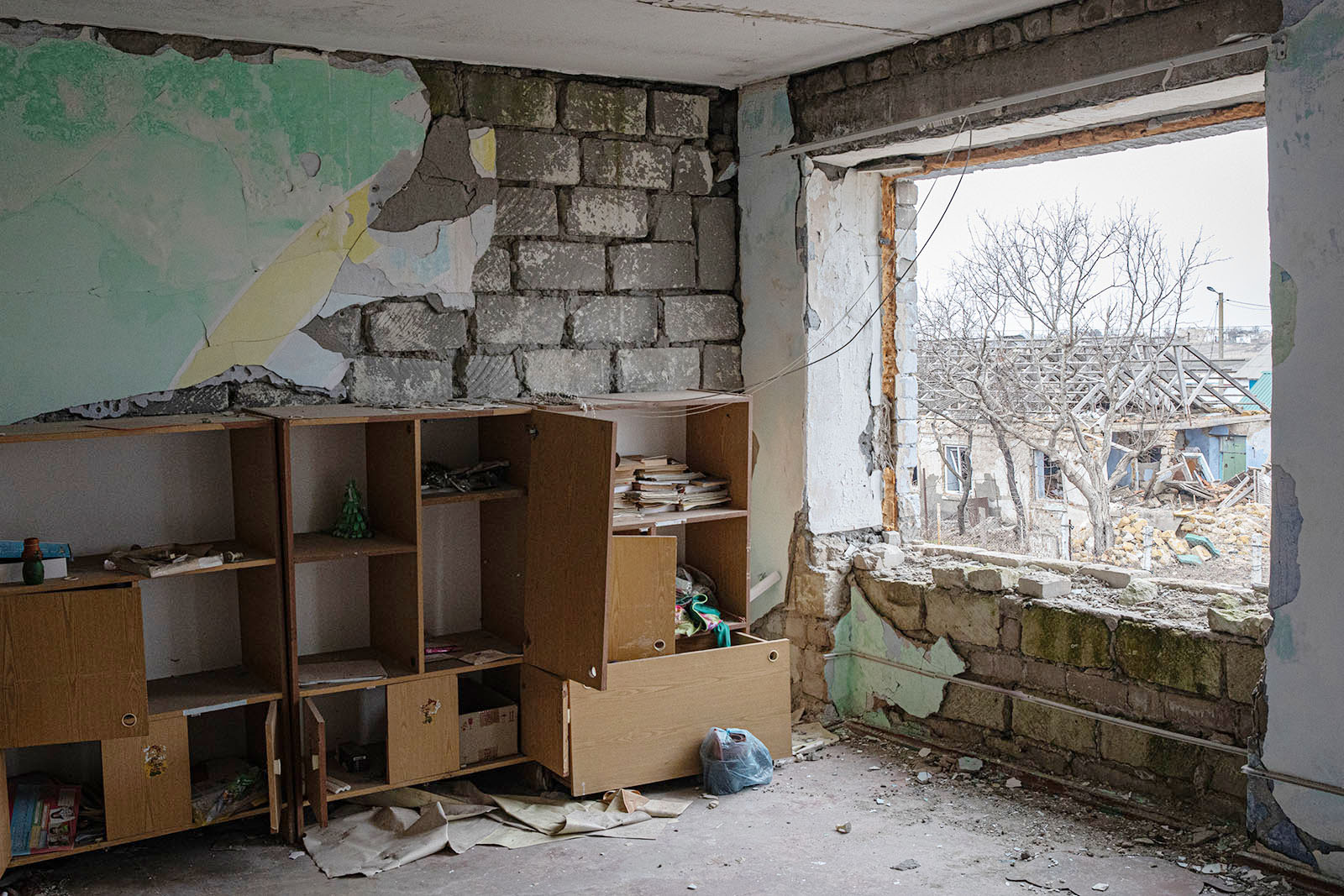
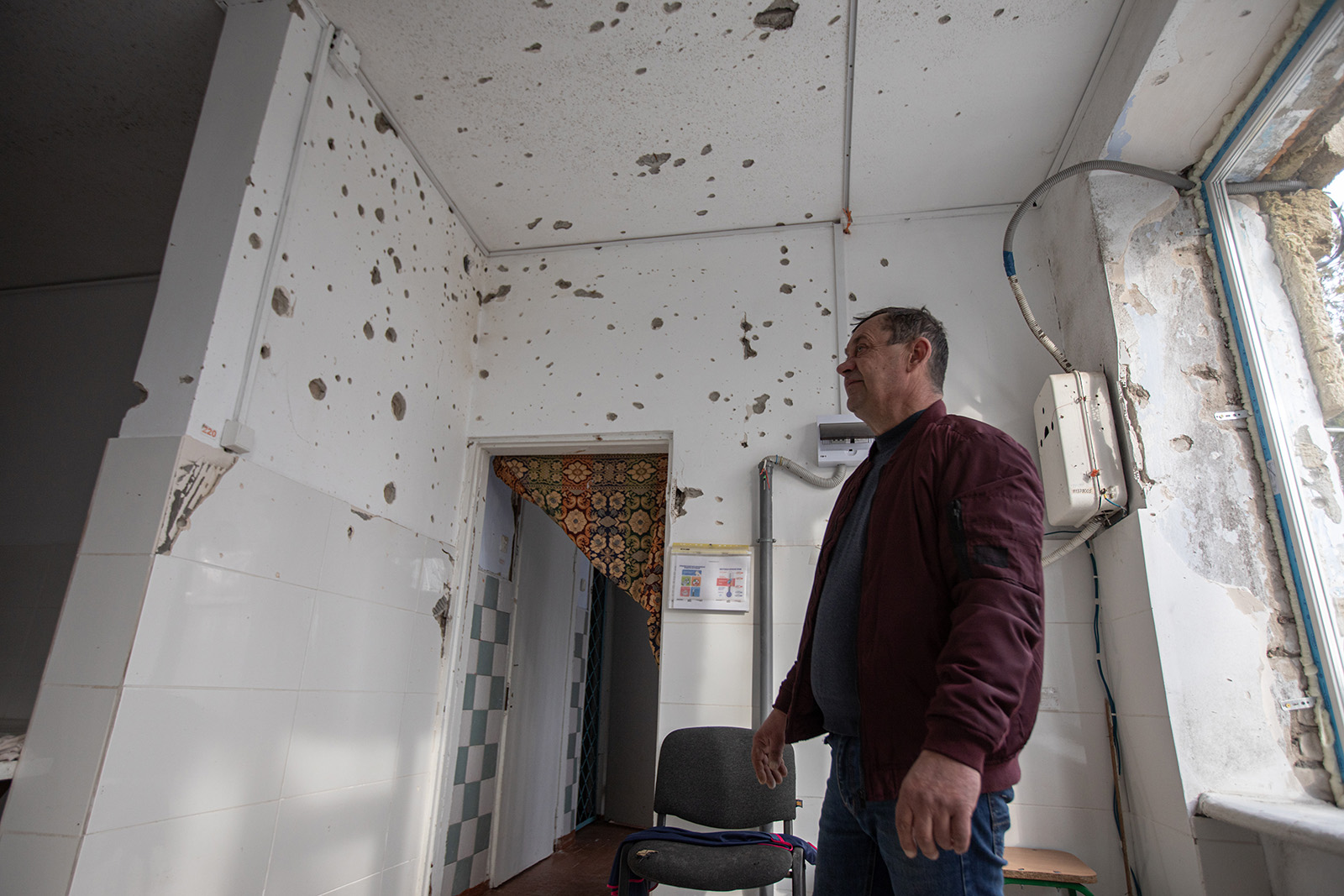
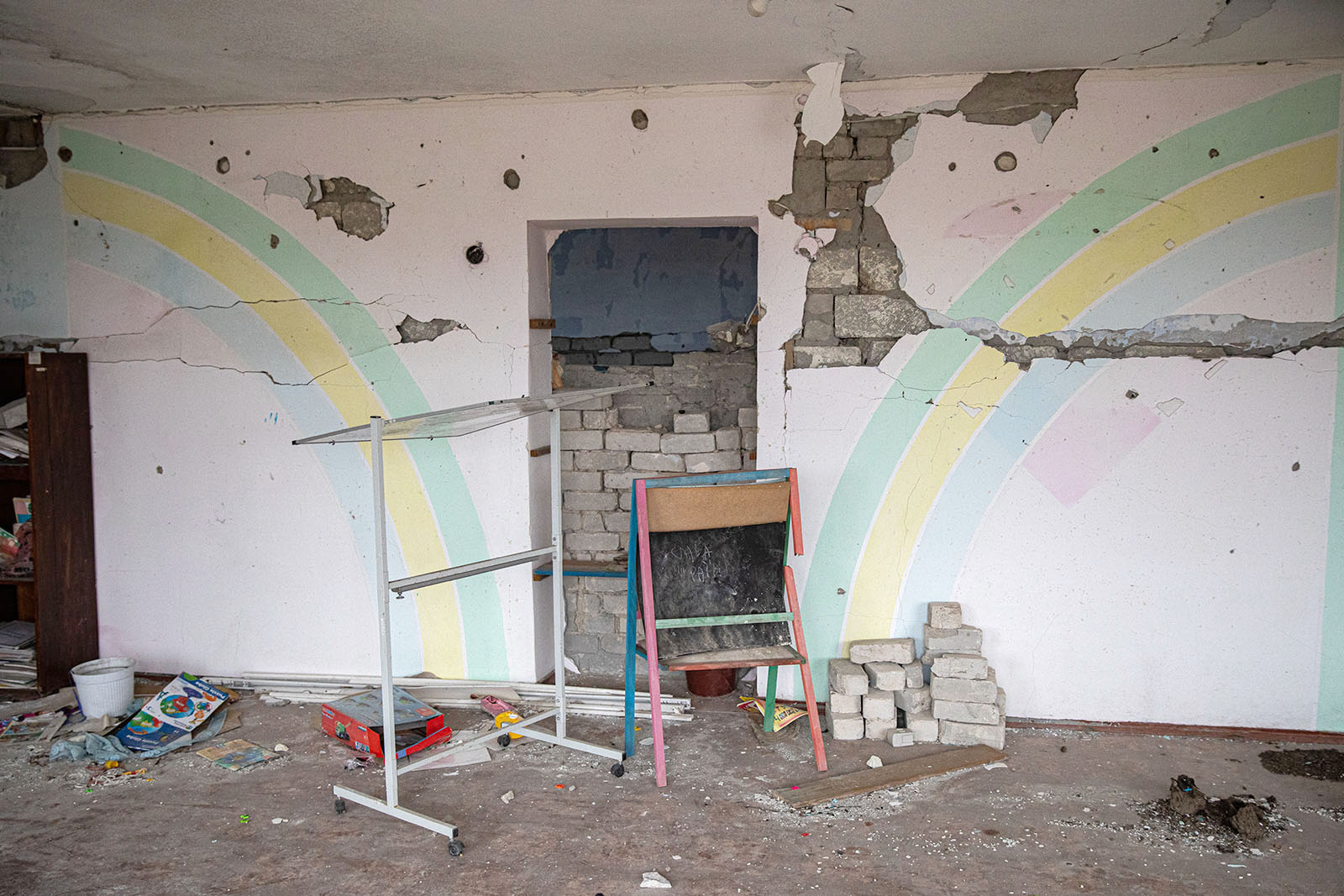
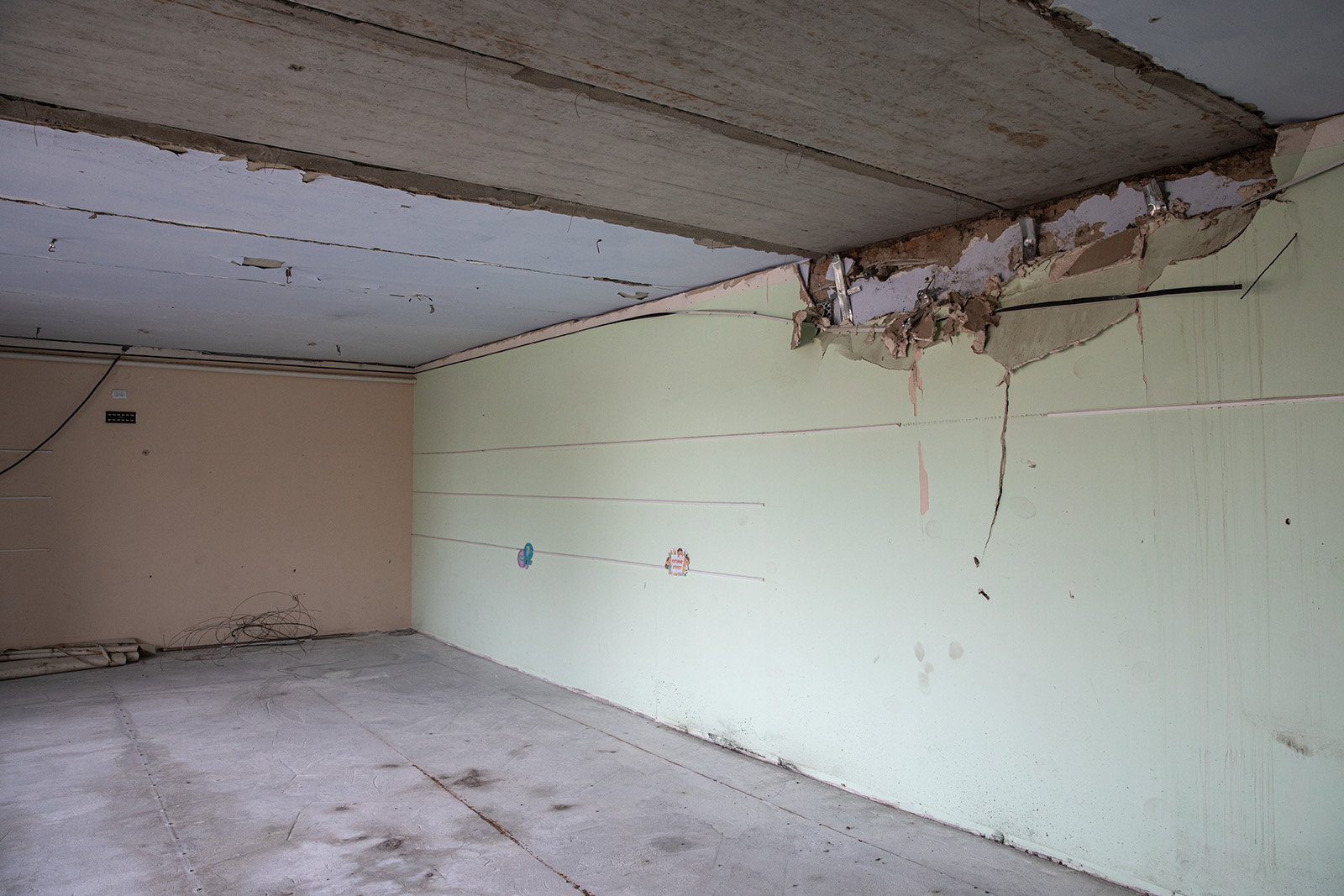
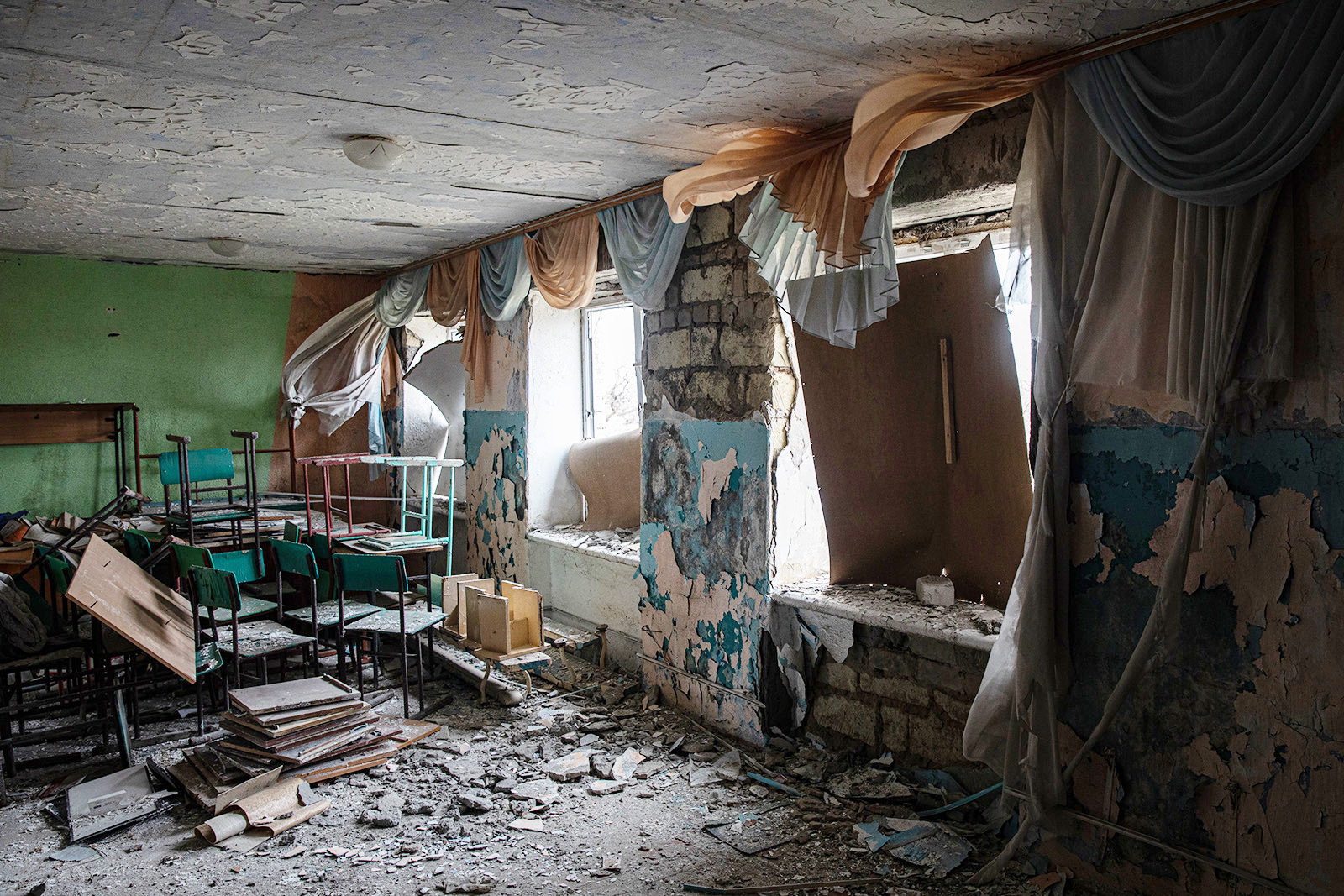
Scenes from inside schools in Kyselivka and Ukrainka after months of shelling blew out the buildings’ windows, walls, and parts of the roof.
At Lyceum 55 in Mykolaiv, CORE helped construct a refurbished shelter: 900 square meters of underground space equipped with proper ventilation, restrooms, desks, medical cabinets, and more. Shelters are a new wartime requirement for all schools and a grim reminder of the ever-present danger; but they enable teachers and students to continue classes amid active air raids or hours-long lockdowns.
“I am overwhelmed with exceptionally good, sincere emotions because children can finally move from online to traditional education,” said Dymtro Vasylkov, the school’s Director. “They have returned to their normal lives, where they communicate with their peers. They are back in society, where they have a full life.”
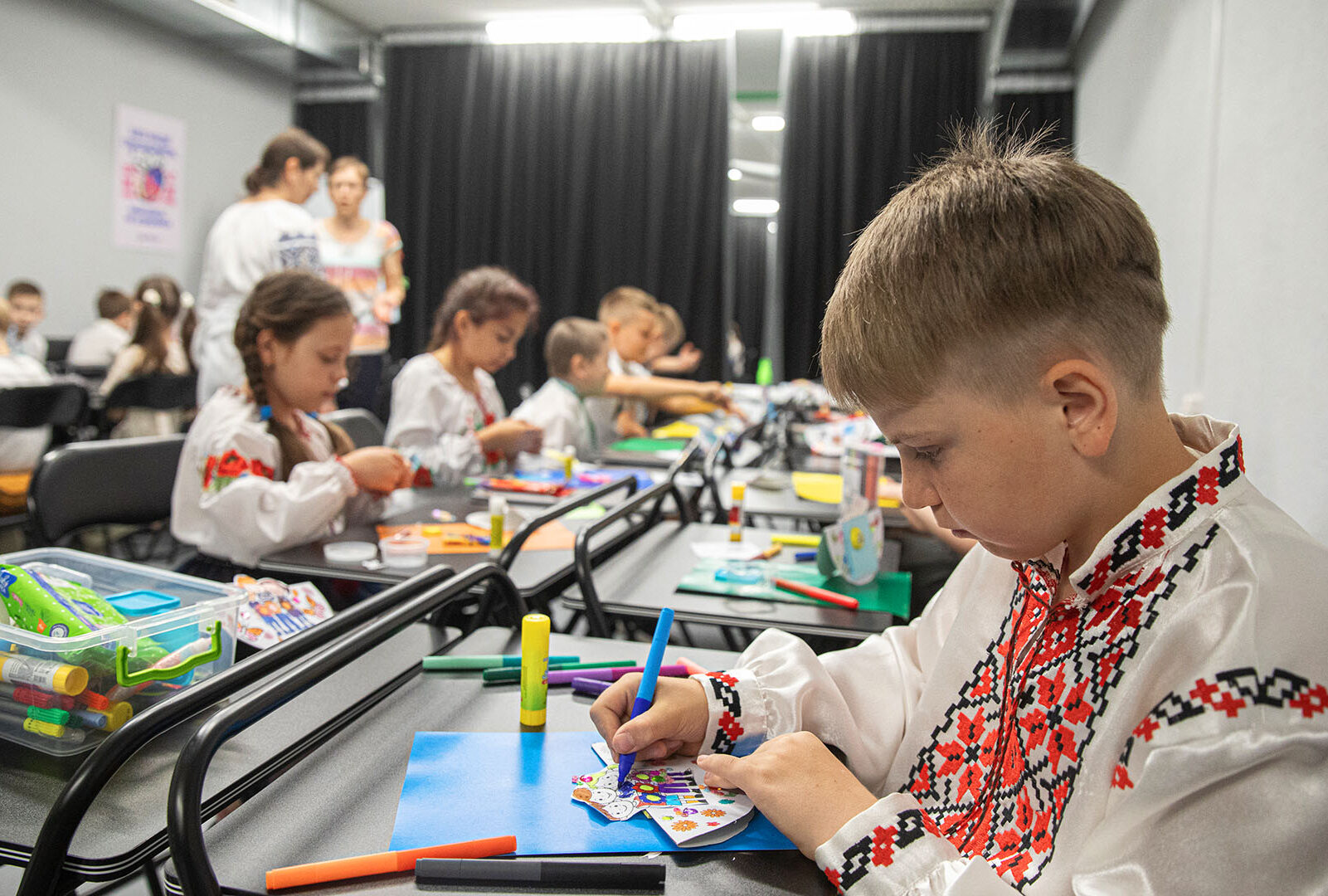
A student coloring at a table inside the school’s underground shelter.
The school administration in Kyselivka, a village that sits east of Mykolaiv, has hopes for the same. They recently connected with CORE, which has begun repairing the school and building a radiation shelter for the students.
Russian forces invaded Kyselivka in March 2022 and used the local school as its headquarters. While most residents fled to find safety, the ongoing barrage cut off access to power, heat, and damaged or destroyed buildings and nearly 80% of homes.
The school’s windows were blown out, the roof and walls destroyed, equipment and cables ruined. Classrooms were unrecognizable. Some staff returned when it was safe to clean up debris, cover windows with wooden panels, and restore heat in the building. Today, its restoration remains a top priority for the village, especially as more residents and their children return home.
“Everyone wants to return, to live in [a] place where they grew up, and raise their children here. But there is no opportunity to study. We understand very well that if there is no school, the village will die…” said Ivan Volko, the Head of the village. “Youth is our generation, our revival, and our future.”
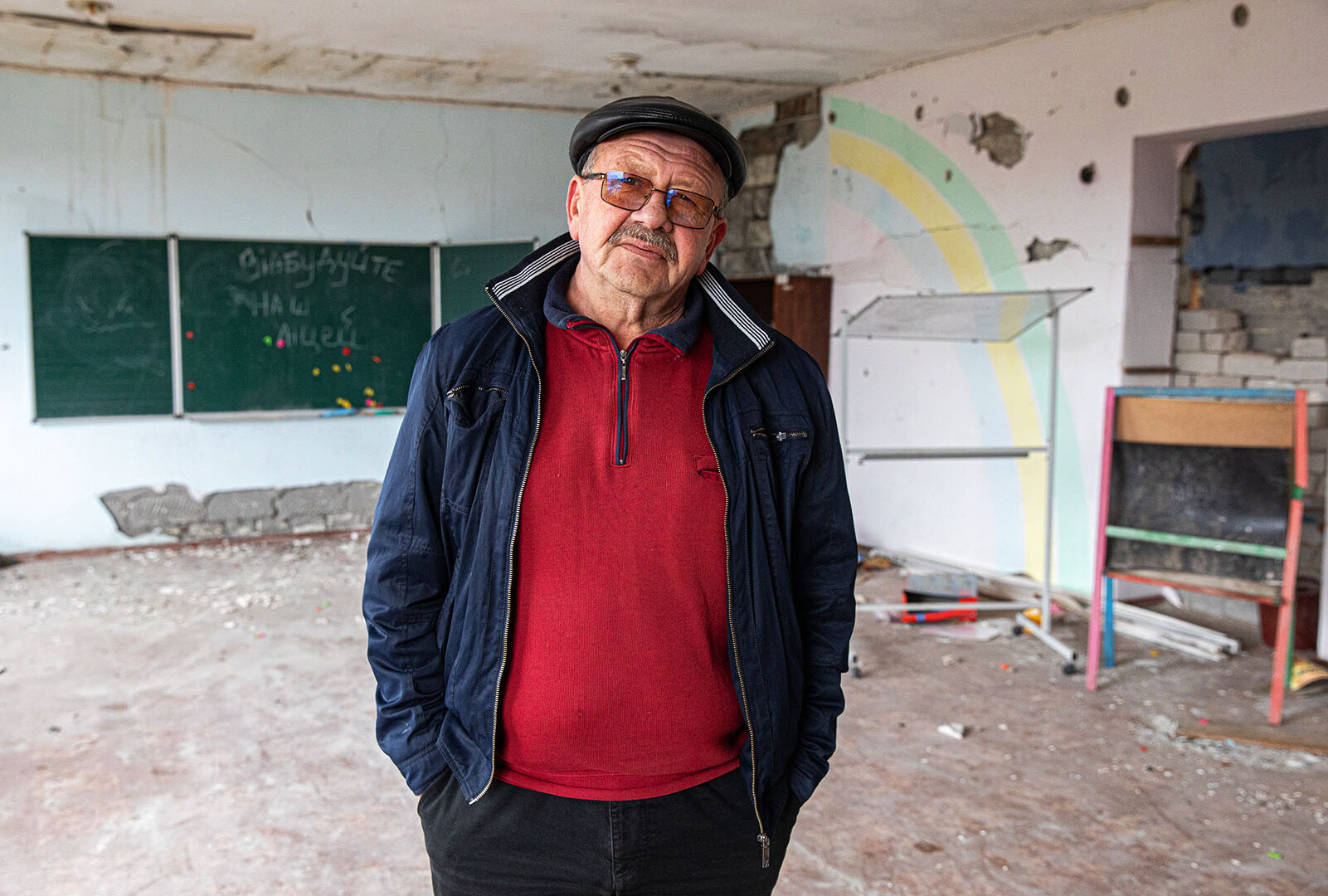
Ivan Volko, the head of the Kyselivka village, stands inside a destroyed classroom.
Continuing education has been a huge challenge for youth throughout the war. Dedicated teachers have adapted their curriculum the best they could, conducting virtual classes to reach displaced students at home and throughout the country. But administrators recognize that the kids are still struggling.
“You can see from the children that they are psychologically tired. And in those rare moments when we gather them at school, it is immediately noticeable how much they miss communication,” said Sehrii Sushko, the director of a school in Ukrainka, a village west of Mykolaiv.
Veronika, a student there, echoed Sehrii’s sentiment. “Before, when I was woken up every morning, I used to say how I didn’t want to go to school and that I wanted to sleep a little more. But now I really want to go to school, socialize, play and learn new things,” she shared.
Construction at Veronika’s school is nearly done—CORE repaired walls and windows and restored classrooms, now fitted with new desks, chalkboards, and colorful murals. These basic improvements represent significant steps toward safer and more joyful learning environments, closer friendships, and stronger communities.
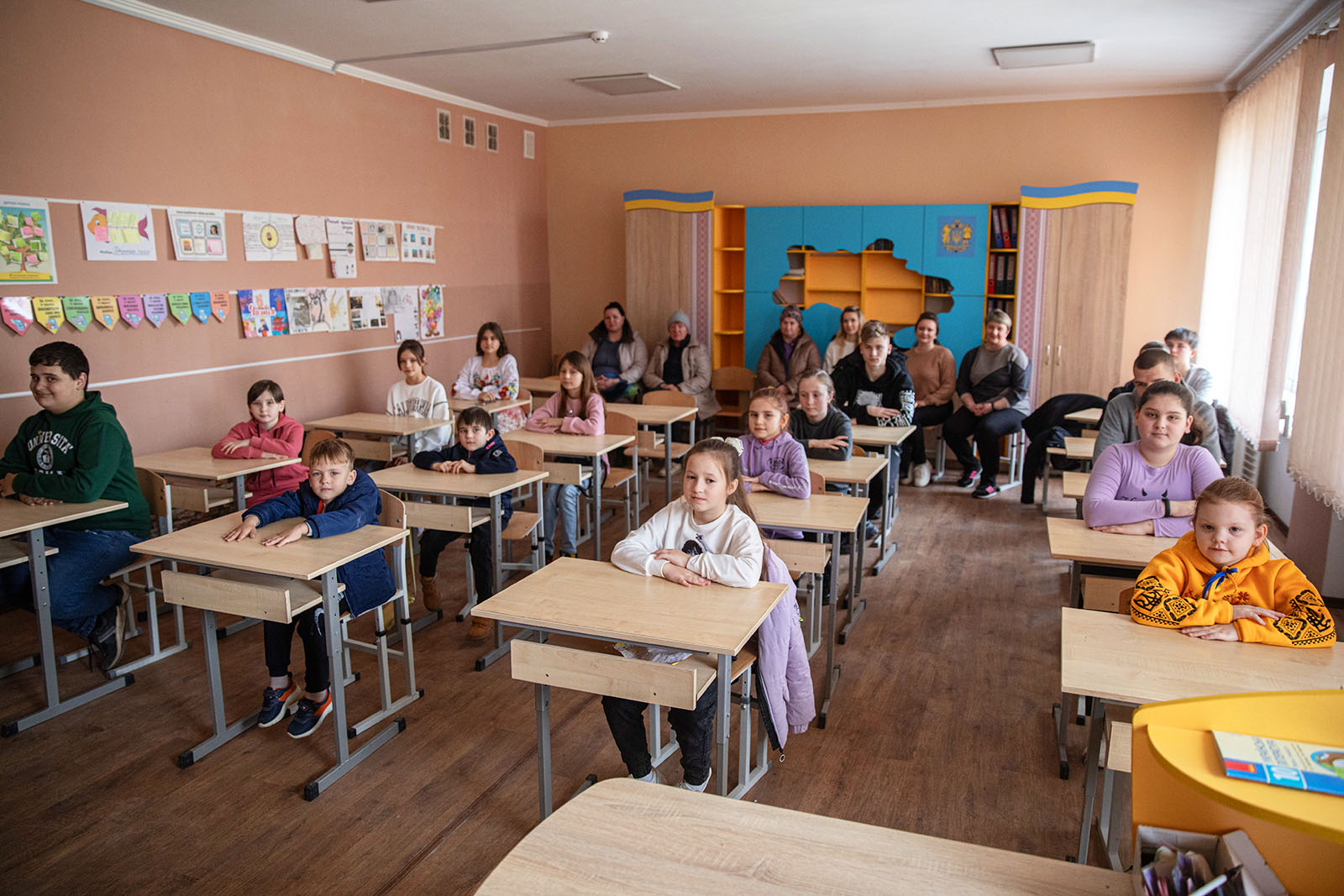
Students and teachers sit in one of the newly renovated classrooms.
CORE has supported the evolving needs of frontline communities in Mykolaiv since the start of the war. Our tailored programs meet Ukrainians where they are at—whether it’s restoring vital infrastructure or repairing homes. Learn more about our work in the region.
HIGHLIGHTS
GET TO KNOW US
GET INVOLVED
MEDIA

REGIONS
California, Georgia, Chicago, North Carolina, New Orleans, Puerto Rico, Kentucky, Navajo Nation, Washington, D.C., Hawaii
INTERNATIONAL
CORE is a charitable 501(c)(3) nonprofit organization. Federal tax ID: 27-1703237.
© 2024 | CORE – Community Organized Relief Effort | +1 (323) 934 4400
910 N Hill St Los Angeles, CA 90012